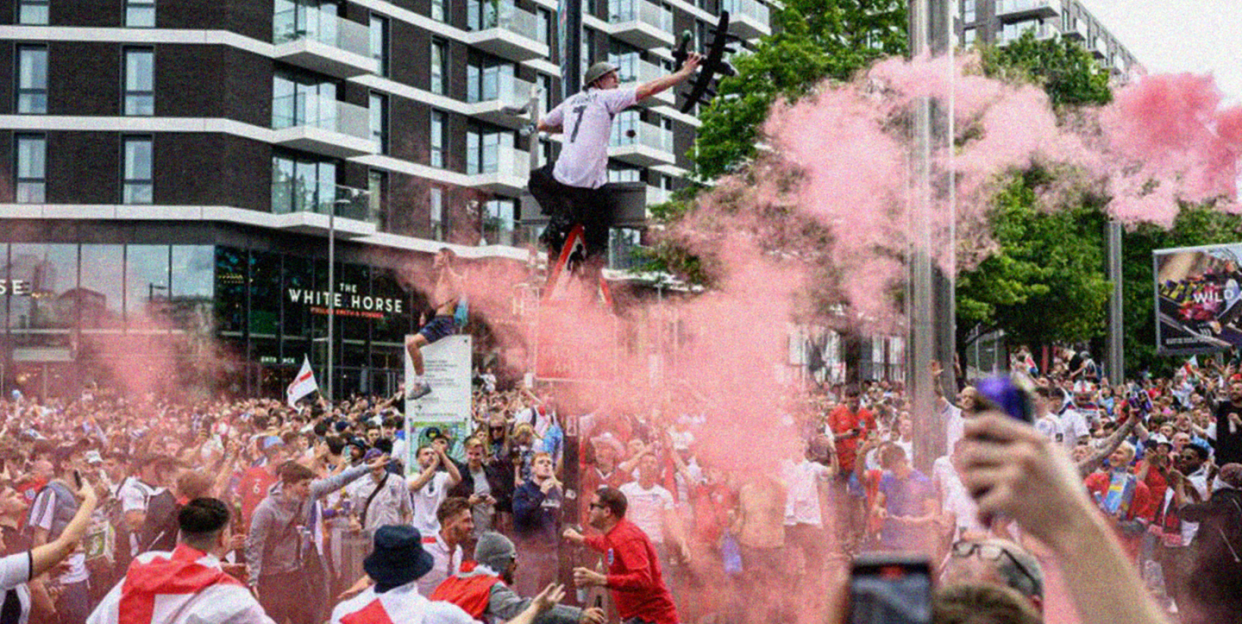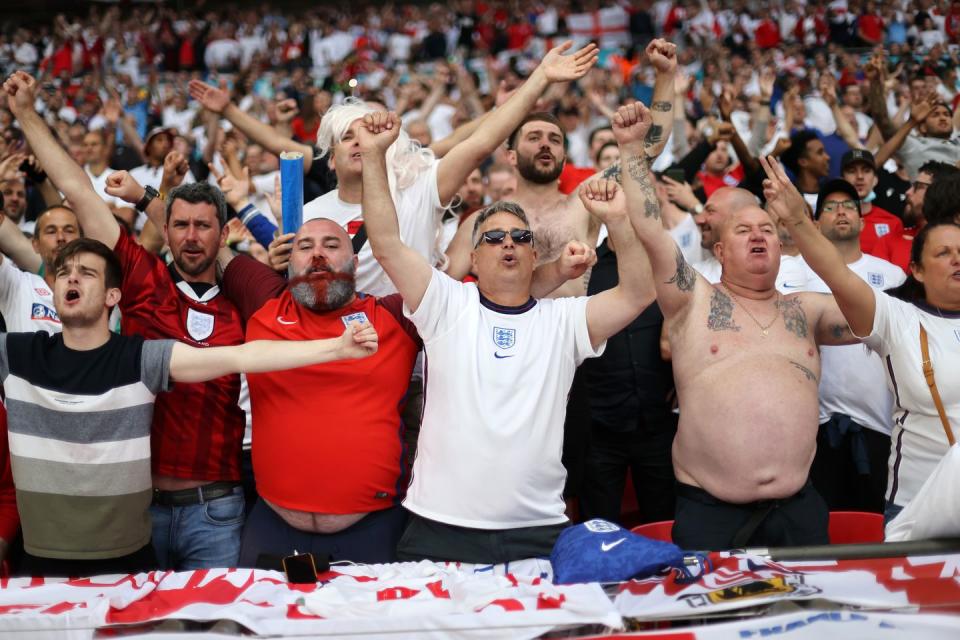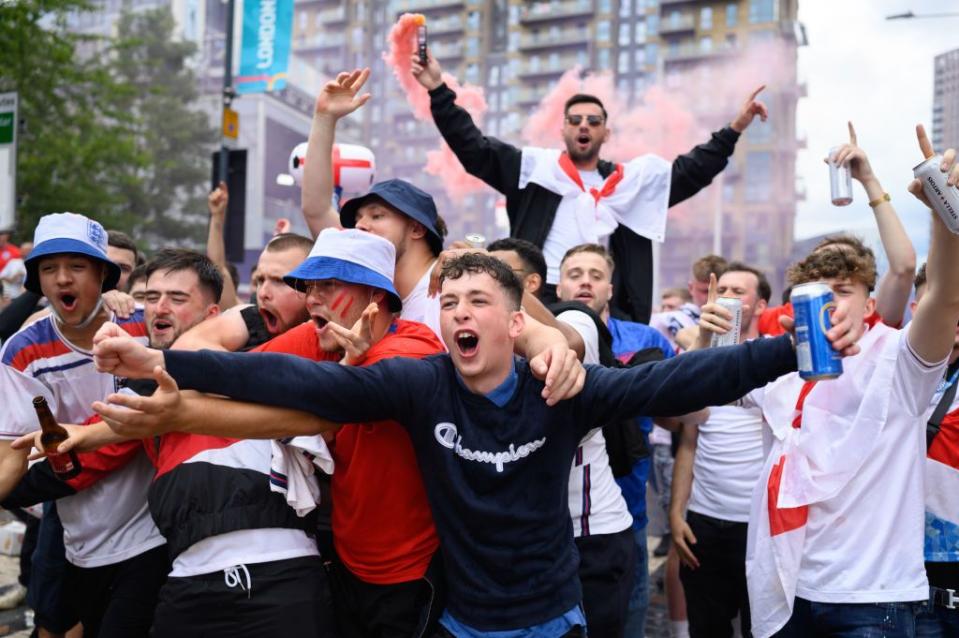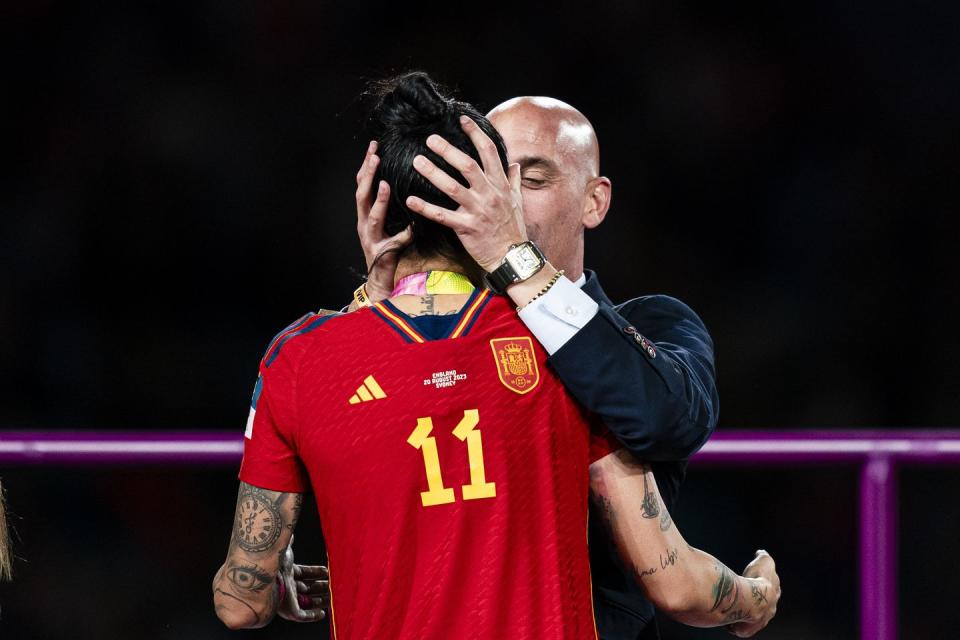‘Toxic masculinity is ruining football for everyone’

For me, football has always been a tool for communication. I was a cripplingly shy child but being able to have a mutual ground from which to start a conversation was a godsend. My confidence may have grown as I’ve gotten older, but using football as a conversational safety net hasn’t faded. It has always unlocked social doors for me and filled awkward silences. Sitting next to someone to watch a match at a pub or exchanging a glance of mutual understanding on the Tube when you’re both wearing the same team shirt makes you feel included in something bigger than yourself.
The men in my life haven’t always been the best communicators – nor the most emotionally in tune – and I’ve seen how the sport has allowed them to express whirlwind emotions without judgement. It might have been deemed ‘unmanly’ to cry over a bad situation at work, but crying over winning the league or a cup? That was permissible. But watching The Final: Attack on Wembley is a stark reminder that the game is also used to licence anti-social behaviour too.
The Netflix film documents the postponed Euro 2020 final and the chaos that ensued when 6,000 ticketless fans stormed Wembley Stadium, fuelled by drugs and alcohol. I sympathise with the die-hard fans who can’t afford tickets due to elitist pricing, but many would rather cause pandemonium on the Wembley steps and miss the game entirely than actually participate in any sort of sportsmanship, which is pure insanity to me as a real fan.
One of my earliest memories of being an Arsenal supporter was attending a North London derby game against our rivals Tottenham at our old Highbury ground and seeing grown men beat the sh*t out of each other. It opened my eyes to the brutality of being a football supporter but also made me look around and realise from an early age, I was always going to be in the minority by being a female fan. I’ve witnessed the culture change a lot over my twenty-odd years of being a supporter; heavy police presence might now always be circling the stadium, but I can’t remember the last time I saw blood drawn, which is something. I’ve also noticed a huge shift in female attendees at matches. But it’s a different picture when it’s a national game.

Attack on Wembley starts with the lead-up to kick-off and features interviews with two people who didn’t get tickets but still showed up anyway. While one fan desperately admitted “I was prepared to spend what I earned in a month on a ticket for that game,” to justify his presence at the stadium, others didn’t seem as football-focused. “I’d rather just go [to Wembley] for the party, to be honest,” said another. However, the ticketless fans and huge crowds quickly got out of hand, which is where the footage gets more harrowing. Nothing seems to permit antisocial behaviour quite like an England shirt. It’s patriotism at its worst.

Scenes of vandalism, drug use and violence were just a few of the clips shown in the documentary. While it might be a case of just a few bad apples – or thousands of them in the case of that particular Euros final, fuelled by the cabin fever of lockdown and post-pandemic social struggles – the issue is that the majority of football supporters refuse to challenge this behaviour. Toxic masculinity such as violence, thuggish behaviour and discrimination has become tolerated – accepted even – as part of big competitions. The film also highlights the racist abuse the three Black players who missed the penalty shoot-out; Marcus Rashford, Bukayo Saka and Jadon Sancho had to endure after the match.
Even the women’s game isn’t immune to toxic masculinity. When Spain won the Women’s World Cup last year, their success was completely overshadowed by the President of the Royal Spanish Football Federation's predatory behaviour when he kissed player Jennifer Hermoso on the lips without consent. Luis Rubiales will now stand trial for the alleged sexual assault.

Even players have admitted this behaviour is an issue that needs to be addressed. Former Manchester United captain Patrice Evra has openly criticised toxic masculinity and the violence that ensues within the game, saying “It’s difficult to talk. Especially in football where there is such toxic masculinity. If a player came and said: ‘This happened to me,’ you don’t want to play with that player. Even crying in football is not allowed. If I had spoken out when I was a player I don’t think I would have been treated with the same respect”, while Blackpool forward Jake Daniels – the only active openly gay football player – admits to still facing homophobic abuse on social media after coming out two years ago. The issue is clearly systemic.
The problem isn’t just limited to the football hooligans who travelled to Wembley. Statistics show that incidents of domestic abuse increase by 26% if England play a game. This increases to 38% if they lose and 11% the day after a match, whether they win or lose. On 11th July 2021, the day of the Euros final, there was a recorded 10% increase in reported incidents.
As someone whose life during the Premier League season revolves around the game, I never lose sight of the fact that it remains just that, a game. It should be a common ground that unites – not divides – us all. I hope the harmful ‘ lad culture’ fades as teams and fans become more inclusive. The fandom for women’s sports may not be at the same level (yet) but it speaks volumes that we don’t ever hear of these types of scenes after tournaments. The positivity surrounding the women's game should set a beaming example of how great football fandom has the potential to be.
You Might Also Like

 Yahoo Lifestyle
Yahoo Lifestyle 
